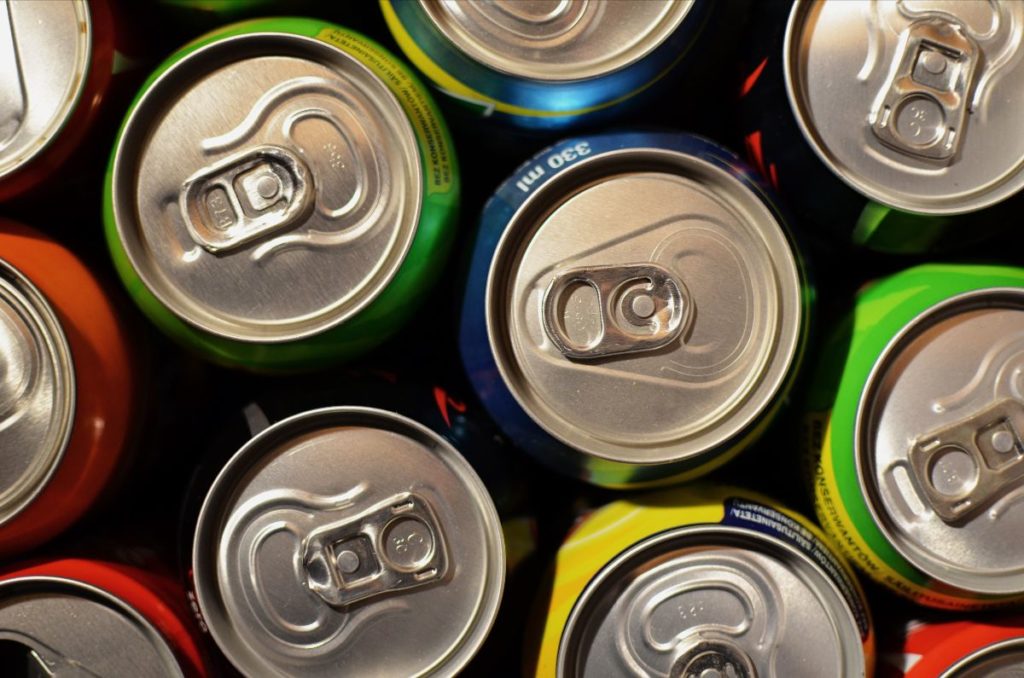ENERGY DRINKS: THE SCARY TRUTH ABOUT HOW IT’S AFFECTING YOU
BY: FITZ-GEORGE RATTRAY
It should seem obvious that a high calorie, high caffeine synthetic processed drink may have adverse effects on human health. But it seems instead, that the marketing, social popularity, acceptance and convenience of these products have all but masked the ill effects.

We have seen repeatedly that common consumer items, from alcohol, to processed foods of the 1950s, tobacco products, refined sugar, leaded petroleum and so many more, have been damaging to deadly. For many years they have gone undisturbed and even protected by governments and society at large, simply because companies have been able to hide behind the popularity of their products. Today energy drinks by and large have the same convenience of protection.
HISTORY OF ENERGY DRINKS AND HEALTH
A World Health Organization (WHO) study concluded that energy drinks could cause public health problems and other reviews looked at possible risks, especially when mixed with alcohols.
Dating back to 2012 the Food and Drug Administration (FDA) posted an adverse-effect report, focusing on two of the many products they identified; 53 illnesses, 5 deaths and 2 permanent disabilities related to just two energy drinks. This is only one year.
These articles report effects of energy drinks:
- Deaths as a result of heart failure
- Miscarriage
- Convulsions
- Deafness
- Hemorrhage
- State of mind trauma including, anxiety, crippling fear, psychotic disorder and suicide
- And hospitalization resulting from heart issues, vomiting, diarrhea and migraine
WHY HASEN’T SOMETHING BEEN DONE?
Unfortunately, there have been reports dating back to 2004, where most medical professionals do not know how to properly report the suspected causes and ill effects suffered by patients possibly affected by energy drinks.
Causality is difficult to prove, it will take much more suffering to create a correlation and eventually further studies to prove cause. In the meantime there will be suffering, but more important for the companies, there will be sales and earnings.
ARE ENERGY DRINKS ABSOLUTELY BAD?
Why and when do these energy drinks go so badly? The two main active components in many of these energy drinks are caffeine, which is a stimulant, a fact which is often underappreciated, and sugar. Other ingredients may include higher than usual levels of vitamins including B vitamins, amino acids, other natural stimulants and herbs.
Sadly, a society which produces energy drinks often also produces excess, and it is this excess which creates a danger to consumers. Although there is no regulation regarding targeted marketing of energy drinks to young people, children are particularly at risk. In 2007, in the USA alone 1,145 children were admitted to emergency rooms for energy drink related emergencies. The number climbed to 1,499 in 2011 and continue to climb. Adults are also at risk, ingesting larger quantities and when mixing with alcohol.
Although the energy drink industry has complied nicely with content and nutritional labeling, despite their stimulant contents and cautioning history they are still not held to the same standards as medications.
HOW MUCH CAN I SAFELY HAVE?
The lack of extensive published studies, to date, makes this difficult to accurately answer. One measure which may assist your judgment is caffeine content. Safe maximum caffeine recommendations are up to 400 milligrams, or, four cups of brewed coffee, or, two shots of energy drinks (always read your labels).
Regardless, one researcher’s recommendation stated that a healthy adult should not exceed one can of energy drink per day. The real question is, why regularly indulge in anything which is potentially harmful, unless it has a lifesaving benefit? But if you chose to, remember the recommendations.
It is unfortunate that most people, are unaware of the health risks connected to energy drinks, in part because of marketing strategies which portray active healthy individuals consuming energy drinks, an image which is equally appealing to children.
Objectively increase your own knowledge, avoid becoming polarized, attempt to have a factual foundation for your critical thinking, protect yourself and your loved ones with reasonable balanced choices.
